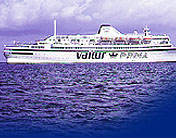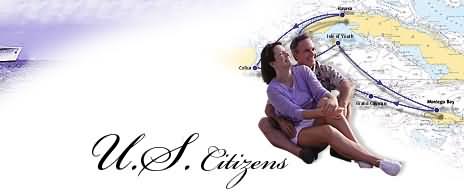 |
|
|
|
|
|
|
|
NOTICE FOR UNITED STATES PASSENGERS There are two different categories of U.S. citizens and residents that can travel lawfully to Cuba, those who travel under authority of a " license," and those whose travel is "fully hosted." This notice summarizes the two categories and the restrictions applicable to each. Travelers under either category are welcomed on board the Valtur Prima provided that they agree to abide by applicable U.S. legal restrictions. I. Licensed Travel All licensed travelers may spend up to $195 per day in Cuba, may return to the United States with up to $100 worth of Cuban merchandise and, in addition, can bring back with them from Cuba unlimited quantities of "informational material" e.g., books, records, cassettes, magazines and maps.Licensed travelers may not use charge cards (including debit or credit cards) for expenditures in Cuba. Licenses authorizing travel to Cuba are either "general" or "specific." "General" Licenses. General licenses do not have to be applied for. Rather, applicable U.S. regulations define and specify the categories of U.S. persons that are eligible for the different general licenses. If you satisfy the criteria established in the regulations, you automatically qualify for the applicable general license. Therefore, you can travel to Cuba under authority of the general license without having to make an application or await approval from the United States Government. The following categories of U.S. persons can now travel to Cuba under a general license: · Journalists regularly employed by a news reporting organization, as well as supporting broadcast or technical personnel; · Official government travelers traveling on official business; · Members of international organizations of which the United States is also a member traveling on official business; · Persons traveling once a year to visit close relatives in Cuba in circumstances of humanitarian need; · Full time professionals traveling to Cuba to conduct non-commercial or academic professional research in their professional areas; · Full time professionals traveling to Cuba to attend professional meetings or conferences in fields other than tourism or biotechnology; and · Amateur or semi-professional athletes traveling to Cuba to participate in an athletic competition sponsored by the applicable international sports federation. "Specific" Licenses. Individuals who do not qualify for a general license may nevertheless be able to apply for and obtain a specific license authorizing travel to Cuba. Specific licenses are issued under a variety of circumstances. For example, a freelance journalist may not qualify for a general license as a journalist, but would likely be granted a specific license to research and write an article about Cuba. Specific licenses are also available to educational institutions and religious organizations. If licensed, these institutions can themselves authorize individuals to travel to Cuba consistent with their programs. Other categories of individuals who are eligible for specific licenses include persons traveling to Cuba to accompany licensed humanitarian donations, and persons traveling for purposes related to the exportation, importation, or transmission of information and informational materials, including provision of telecommunications services. Authorization for travel comes from the Office of Foreign Assets Control, U.S. Department of the Treasury, 1500 Pennsylvania Avenue NW, Washington, DC, 20220 (www.treas.gov/ofac/). II. "Fully Hosted" Travel A U.S. person may lawfully travel to Cuba provided that he or she spends no money while in Cuba and provided that no money paid by the U.S. traveler is, in turn, used to pay the traveler's expenses while in Cuba. These travelers are referred to as "fully-hosted" travelers. Applicable U.S. regulations provide that a fully-hosted traveler may pay for round trip transportation to and from Cuba so long as the flight or cruise is not on board a Cuban carrier and does not originate in the United States. Fully-hosted travelers may not bring back to the United States any Cuban-origin goods (such as cigars or souvenirs), except informational materials such as books, magazines, records, cassettes and artwork. Finally, a fully-hosted traveler may not pay a tour operator, such as Valtur, for expenses incurred in Cuba for such things as meals, lodging, fuel, visas, entry or exist fees, or gratuities. Valtur Tour Operators S.p.A. of Rome, Italy has structured its cruise on the Valtur Prima so that U.S. passengers who spend no money while ashore at Cuban ports of call will properly be considered fully-hosted travelers. This is because Valtur does not bear any costs in Cuba as a result of the presence of fully-hosted travelers on board the cruise. For example, all U.S. passengers are admitted to Cuba on an 'in-transit' visa, which is provided at no cost by the Cuban government. Similarly, all accommodations and meals during any Cuban port-of-call will be provided aboard the vessel, and shore excursions in Havana will be provided to U.S. passengers at no cost to the passenger or Valtur. U.S. passengers participating in this program, and expending no money while ashore in Cuba, are therefore properly considered fully-hosted travelers. As a result, unless the fully-hosted traveler spends money while in Cuba, his or her time in Cuba will not violate United States law or regulation. |
